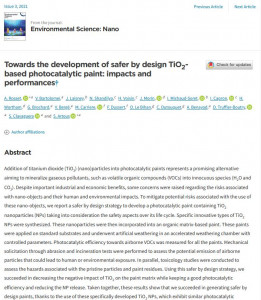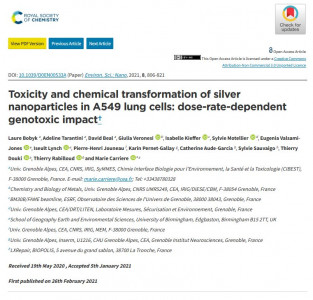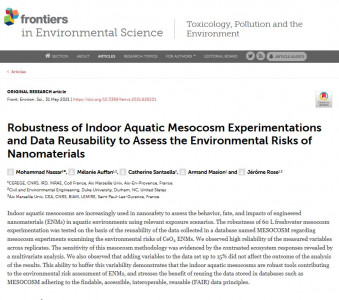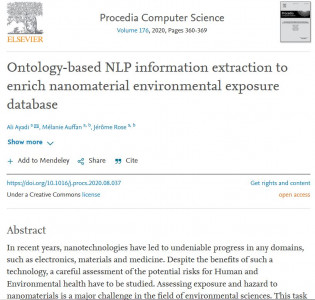Article on "Safety Evaluation of TiO2 Nanoparticle-Based Sunscreen UV Filters on the Development and the Immunological State of the Sea Urchin Paracentrotus lividus" by Catalano, R., Labille, J., Gaglio, D., Alijagic, A., Napodano, E., Slomberg, D., ... & Pinsino, A. (2020).
Abstract:
Sunscreens are emulsions of water and oil that contain filters capable of protecting against the detrimental effects of ultraviolet radiation (UV). The widespread use of cosmetic products based on nanoparticulate UV filters has increased concerns regarding their safety and compatibility with both the environment and human health. In the present work, we evaluated the effects of titanium dioxide nanoparticle (TiO2NP)-based UV filters with three different surface coatings on the development and immunity of the sea urchin, Paracentrotus lividus. A wide range of NP concentrations was analyzed, corresponding to different levels of dilution starting from the original cosmetic dispersion. Variations in surface coating, concentration, particle shape, and pre-dispersant medium (i.e., water or oil) influenced the embryonic development without producing a relevant developmental impairment. The most common embryonic abnormalities were related to the skeletal growth and the presence of a few cells, which were presumably involved in the particle uptake. Adult P. lividus immune cells exposed to silica-coated TiO2NP-based filters showed a broad metabolic plasticity based on the biosynthesis of metabolites that mediate inflammation, phagocytosis, and antioxidant response. The results presented here highlight the biosafety of the TiO2NP-based UV filters toward sea urchin, and the importance of developing safer-by-design sunscreens.









